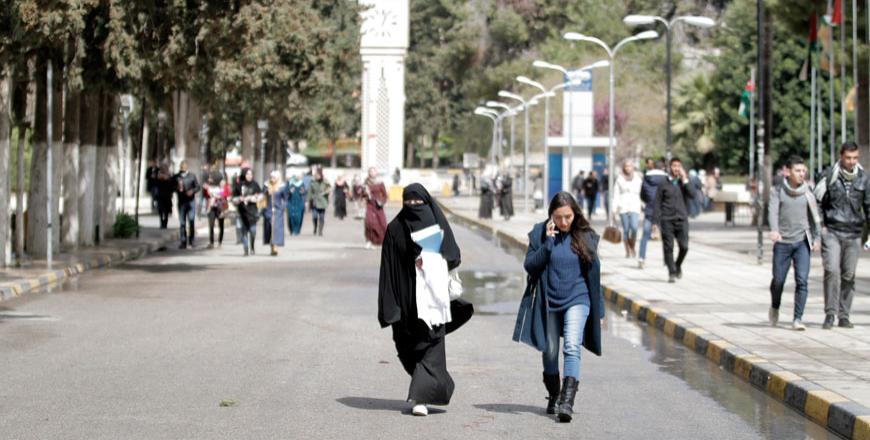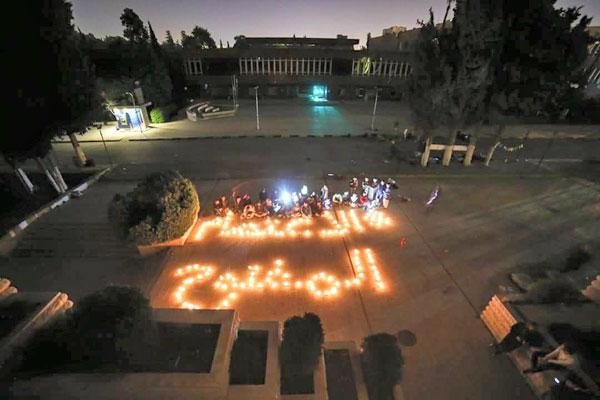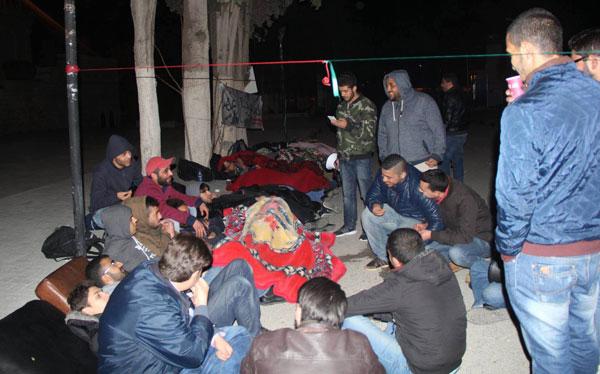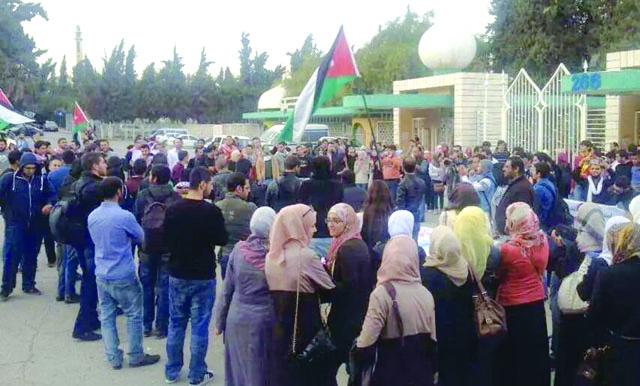You are here
UJ protesters banned from staying overnight
By Suzanna Goussous - Apr 05,2016 - Last updated at Apr 05,2016

University of Jordan students have resumed a protest against hikes in tution fees, calling for transparency in implementing a deal reached with the administration previously (Photo by Osama Aqarbeh)
AMMAN — The University of Jordan’s (UJ) council of deans announced a decision banning protesters from staying overnight on campus for “security reasons”, the university’s caretaker President Azmi Mahafza said on Sunday.
As students continue their protest against raising the tuition fees, the council of deans said the university “does not mind” having “peaceful” sit-ins, but these are not allowed to stay after closing the university gates at midnight.
Students were not forced to end the protest, Mahafza told The Jordan Times, adding that those who do not follow the statement issued by the council are to be held accountable for violating the new rule.
“This is not about the protest; it is about the safety of the students living in dorms and about preserving the university’s assets… Students have the right to protest, however, they are not allowed to stay after the gates are closed,” he added.
The sit-in started on February 28, when students from different faculties came together to demand reversing the decision of raising fees for the parallel and post-graduate programmes.
UJ’s board of trustees had lowered the raise on fees by half around three weeks ago during a meeting with the Higher Education Council, and agreed to gradually scrap the hike over a period of two years.
Students have not received a response on the scheduled cancellation of the raise, according to Alaa Hajjeh, who is one of the protesters.
“The board signed an agreement of dropping the raise by half for both programmes… The Higher Education Council asked board members to schedule the remaining percentage for the next two years, and they have to provide us with this schedule,” he said.
He noted that when demonstrators suspended the decision on March 18, they expected to see the deal implemented on the ground.
Mahafza said the board members and university administration are “studying” the decision to lower the remaining percentage taking into account the university’s financial deficit and budget.
He added that the parallel programme is one of the main income generators for the university and that officials have to “thoroughly evaluate the decision” to set alternatives and solutions for the financial loss the university will face afterwards.
According to university officials, the decision of lowering the raise on tuition fees by 50 per cent will cost the university around JD10 million a year.
Related Articles
AMMAN — Around 27 University of Jordan (UJ) protesters on Tuesday were referred to the university administration for violating orders issued
AMMAN — Students from the University of Jordan (UJ) on Monday continued their protest on campus after staying overnight to express their rej
Around 300 University of Jordan (UJ) students gathered in front of the university’s main gate on Tuesday for an “overnight stay” to continue their protest against the hikes in tuition fees for the parallel and postgraduate programmes.



















